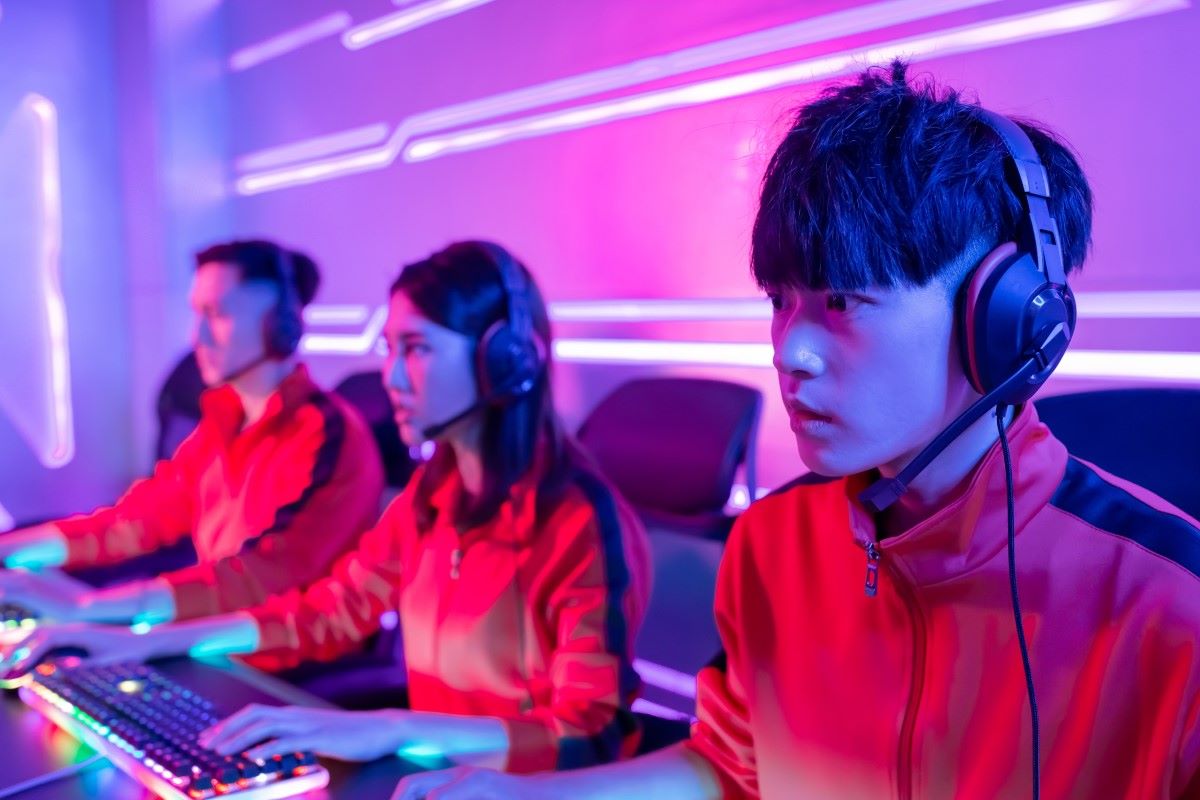South Korea’s gaming market has expanded over the years due to its vibrant and competitive gaming culture. With over 35 million players, the Asian country is the fourth-largest gaming market in the world by revenue. The size of the market more than doubled over the last decade from 9.75 tn won ($7.2bn) to more than 21 tn won ($15 bn).
South Korea was one of the earliest countries to recognise esports (electronic sports) as a career choice. The government has undertaken initiatives to bolster the industry such as inclusion in high school syllabi to encourage students to partake in esports. There is also Korea Scholastic Esports Federation, an affiliate of the North America Scholastic Esports Federation, that aims to facilitate the growth of esports in high schools in South Korea. This gave rise to competitiveness among young gamers in the country. The government considers extending the gaming ecosystem as a way to create more jobs.
Over 70% of the South Korean population engages in gaming in some form. The country also has one of the best and fastest internet connections in the world, enabling growth in the sector. The success of 5G in South Korea has also opened more possibilities to develop the gaming industry with virtual reality (VR) and augmented reality (AR).
Another factor promoting the gaming frenzy in South Korea is the high number of PC bangs. A PC bang is a LAN gaming centre or internet cafe in the country where people can take part in computer games, usually multiplayer, for a particular time. These centres provide high-end gaming PCs with a strong internet connection.
Movie theatres were forced to shutter during the Covid-19 pandemic. However, CJ CGV, the largest multiplex chain in the country, sought to use the popularity of gaming to make up for the lost revenue. The chain gives cinema screens to gamers for around 100,000 won ($75) for two hours. Although gamers have to bring their own games and consoles, they can take advantage of the immersive experience with the high-quality images and sound of a theatre.
Big fish of the South Korea gaming market
The South Korean gaming market is dominated by the 3N, namely, Nexon, NC Soft and Netmarble. They are followed by other companies that have made promising leaps in the last couple of years.
Nexon is currently South Korea’s largest gaming firm. Although the firm was established in Korea, it had its IPO in Japan. The company is known for Dungeon Fighter Online (DFO), a very popular game in China. Some other popular games include MapleStory and KartRider. Nexon has various offices around the world, and the publishing or development of games is independently managed by subsidiaries in each region.
NCSoft is behind the successful video games Lineage 2 and Guild Wars 2. The company primarily focuses on the mobile gaming industry. Listed in Seoul, NCSoft has a global presence and is largely involved in developing multiplayer games.
Netmarble is one of the leaders in mobile gaming in South Korea gaming sector. Marvel Future Fight and Cookie Jam are some of its most successful games. Listed in Korea, Netmarble has a number of successful online games and a presence in various parts of the world.
Krafton, previously known as Bluehole, is home to a variety of studios and game development teams that produce original games. PUBG, one of the top multiplayer games in South Korea and the world, was made by PUBG Corporation, a subsidiary of Krafton. Delusion Studio, En Masse Entertainment, Bluehole Squall, and Red Sahara are some of its other subsidiaries.
Pearl Abyss created the MMORPG (massively multiplayer online game) Black Desert Online in 2010. In four years, the game alone has produced over $1 bn in gross sales. Crimson Desert is another popular MMORG released by Pearl Abyss. It is also available in 12 additional languages. In 2020, Pearl Abyss acquired CCP Games, Iceland’s biggest game studio, for $425m.
Kakao Games is a subsidiary of the internet giant Kakao. It is also a company that found success in the MMORPG world. Some of its popular games are The of Genesis: Battle of Antaira and Odin: Valhalla Rising.
What next for South Korea gaming sector?
South Korea gaming firms have started using VR on a large scale and the industry is anticipated to develop at a compounded annual growth rate (CAGR) of 23.38% from 2022 to 2027. The demand for new immersive experiences and the robust gaming culture are driving this development. VR games and equipment such as VR headgear and sensor-equipped gloves are now available for testing in the majority of gaming malls and arcades. The growth of the metaverse is also pushing the investment in immersive game technology.
“In China and South Korea, favorable government policies continue to encourage VC investment in metaverse start-ups, despite smaller deal sizes compared with 2021…South Korea’s Ministry of Science and Information and Communication Technologies has put $177mn aside to kickstart its metaverse industry. One aim is to build a metaverse platform for its citizens to access public services virtually,” wrote London-based investment data firm Preqin.
– reporting by Jovan Thomas


 Australia
Australia China
China India
India Indonesia
Indonesia Japan
Japan Malaysia
Malaysia Philippines
Philippines Singapore
Singapore South Korea
South Korea Taiwan
Taiwan Thailand
Thailand Vietnam
Vietnam







